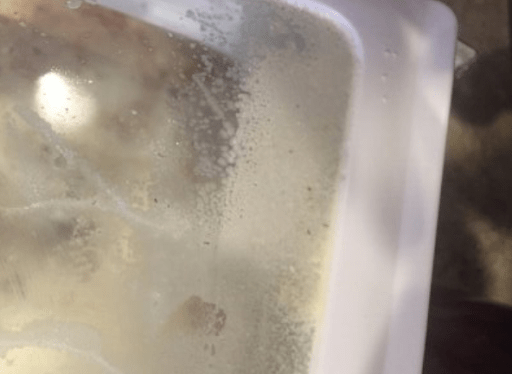Winter is here, and we want to share some ideas to stay active indoors around cleaning! Below are some tips on cleaning our kitchen to ensure our families do not get sick due to food safety.
Why?
Cleaning does not kill foodborne pathogens of concern (that is what sanitizing is for), but cleaning WILL help prevent the buildup of “gunk” that could attract pests and germ “homes” that call biofilms (to food microbiologists).
Cleaning virus sanitizing:
Cleaning is done with soap and water and removes any dirt or food you can see. Cleaning does not kill germs.
Sanitizing is done with a chemical, such as a bleach water mixture or sanitizing wipes. Sanitizing will kill germs, but you will need to clean first to let the sanitizer work.
How?
Start with looking for the appliance instruction manuals to see how the manufacturer recommends a microwave, dish washer, oven, or your refrigerator to be cleaned.
- Some appliances may only want you to clean with soap and water, because sanitizing wipes could ruin the finish.
If you don’t have the manufacturer manual you may be able to find a pdf version online or a phone number on the appliance to call and speak to a representative.
Did you know?
We may have noticed some of our favorite local restaurants will close during the winter. Some restaurants will take the time during the slower months of the year to do what they call a “deep” clean, where everything in their kitchen can be taken apart and thoroughly cleaned and sanitized, all with the goals of having a safe kitchen and one they are proud to cook in. We hope you and your household embrace the restaurant mentality and look at some equipment you haven’t thought of cleaning or needed some extra motivation to clean ☺
Cleaning out your refrigerator and freezer:
Visit this article on cleaning your refrigerator from March, 2020.
Here are some quick tips to keep in mind when you do clean your refrigerator and freezer.
- Read the manufacturer instructions:
- Is it safe to move the refrigerator to vacuum or dust underneath, behind and on top of the entire unit?
- Are there special instructions for cleaning water/ice filters?
- Is soap okay to use? because it could leave odors?
- Is baking soda okay to use because it could scratch the inside of the refrigerator?
- For stainless steel do you need to clean the outside only with soap and water?
- Do glass shelves need to come to room temperature before being washed with hot water, because cold glass in hot water could crack the glass with the extreme temperatures?
- Do a deep clean of removing shelves and drawers at least twice a year.
- Clean the refrigerator and freezer separately, so you are rushed to look for spoiled and freezer burned food items.
- Remove, clean and replace foods within an hour to prevent germ grown, especially when temperatures are 90 degrees Fahrenheit and above.

Helpful links:
Washington Post Article:
https://www.washingtonpost.com/food/2021/07/26/cleaning-refrigerator-tips/+&cd=13&hl=en&ct=clnk&gl=us
www.buzzfeed.com/lanifurbank/clean-my-refrigerator
